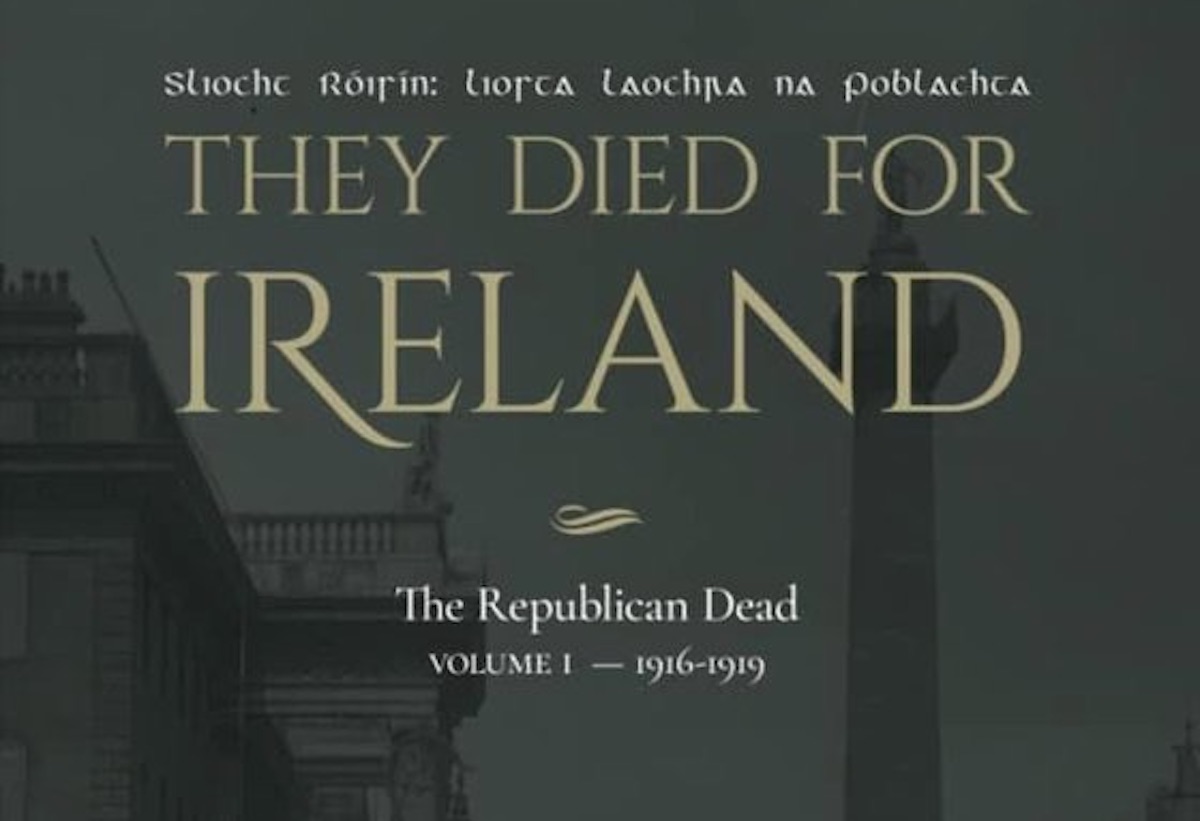
‘Sliocht Róisín’ is an independent project aimed at recording in print all Republican casualties 1916-24. The following is the preface to Volume 1, 1916-19, by historian and author Lorcan Collins.
Ireland has the unenviable record of suffering the longest occupation by another nation. Since the Norman invasion of 1169, the English subjugated the Irish for centuries.
From the Cromwellian massacres to the Genocide of the Great Hunger, the Irish people, mostly those of the Catholic faith, had little option, either emigrate or attempt to scrape by as third-class citizens. Protestants dominated civic life to such an extent that Catholics were denied access to the most basic necessities of democracy, the Irish Parliament itself barring their entry.
Occasionally great Irish progressive Protestants like Theobald Wolfe Tone or Robert Emmet and their followers, rose up against English rule in 1798 and 1803 respectively, but the United Irishmen were brutally suppressed and the Irish Parliament was ripped from the heart of Dublin and nestled into the British Parliament in Westminster.
Daniel O’Connell called for the repeal of the Acts of Union and mobilised a popular non-violent movement which ultimately failed, but O’Connell did achieve the right for Catholics to enter the British Parliament in 1829.
The 1840’s witnessed the emergence of the Young Ireland movement which in turn brought about a small uprising in 1848 followed by the development of the radical Fenians in the 1850’s leading to another couple of uprisings in 1866 and 1867.
The immortal Invincibles played their part in 1882 with the assassinations of the English political appointees, Burke and Cavendish, but by the turn of the century most Irish nationalists favoured the non-violent democratic Home Rule political party, who campaigned for the return of an all-Ireland parliament.
The Third Home Rule Bill passed but was shelved for the duration of the war which broke out in Europe in August 1914.
The old aphorism “England’s difficulty is Ireland’s opportunity” came into play and seven men, radical members of the Irish Republican Brotherhood led the Easter Rising of 1916, a week of fighting which culminated in the execution of 16 men. The political landscape altered significantly and from the ashes of a destroyed Dublin City arose a new spirit and the Irish Republican Army engaged in a fight for freedom which coincided with Sinn Féin becoming the largest political party in 1919.
A Truce in July 1921 led to a poorly negotiated Treaty between both nations signed in December 1921. Sadly, this led to a brutal Civil War fought between the Anti-Treaty IRA and the Free State or National Army who were supported by the British Government.
One hundred years after the 1922-23 Civil War I welcome this wonderful publication which seeks to honour the men and women who fought and died for the Irish Republic during those revolutionary years of 1916 to 1923. This unique publication sets the record straight on those who paid the hardest price for freedom.
We owe a debt of gratitude to people who sacrificed their lives for the cause; these men and women were just like us, they had lives to live, families and friends, they loved life, they were students, workers, mothers and fathers, some were working class and some were from wealthy backgrounds and yet they all shared a dream, that Ireland would be free as an independent nation, free to control Her destiny.
These men and women were fearless revolutionaries, their names are as great and their deeds as fearless as those of Tone and Emmet.
The reason their names don’t trip off the tongue the way those of Pearse and Connolly do is that they are so numerous and the human brain lacks the capacity to recall them all. This is why this particular book is of such immense importance, the author and researchers and advisors are to be commended for an incredible feat of scholarship which will not only add to the story of the revolutionary years, but will be a testament to the men and women who gave their lives for Irish freedom.
As we get closer every day to a United Ireland, the key word we must hold on to is that inscribed within the seal of the United Irishmen, Equality and let us never forget to proudly recall every life that was lost in the fight for a true Irish Republic.
* ‘SLIOCHT RÓISÍN - Liosta Laochra na Poblachta: THEY DIED FOR IRELAND’, Volume 1, is a hardback which runs to 425 fully illustrated pages with over 250 profiles. It is available for pre-order by contacting project director Colum Ó Ruairc at 1798rcd@gmail.com
![[Irish Republican News]](https://republican-news.org/graphics/title_gifs/rn.gif)
![[Irish Republican News]](https://republican-news.org/graphics/title_gifs/harp.gif)

